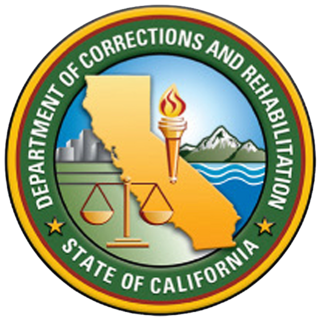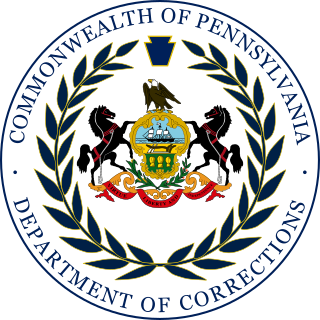
Penology is a sub-component of criminology that deals with the philosophy and practice of various societies in their attempts to repress criminal activities, and satisfy public opinion via an appropriate treatment regime for persons convicted of criminal offences.

Megan's Law is the name for a federal law, and informal name for subsequent state laws, in the United States requiring law enforcement authorities to make information available to the public regarding registered sex offenders. Laws were created in response to the murder of Megan Kanka. Federal Megan's Law was enacted as a subsection of the Jacob Wetterling Crimes Against Children and Sexually Violent Offender Registration Act of 1994, which merely required sex offenders to register with local law enforcement. Since only few states required registration prior to Megan's death, the state level legislation to bring states in compliance—with both the registration requirement of Jacob Wetterling Act and community notification required by federal Megan's Law—were crafted simultaneously and are often referred as "Megan's Laws" of individual states. Thus, federal Megan's Law refers to community notification, whereas state level "Megan's Law" may refer to both sex offender registration and community notification.
Probation in criminal law is a period of supervision over an offender, ordered by the court instead of serving time in prison.

Recidivism is the act of a person repeating an undesirable behavior after they have either experienced negative consequences of that behavior, or have been trained to extinguish that behavior. It is also used to refer to the percentage of former prisoners who are rearrested for a similar offense.

A halfway house is an institute for people with criminal backgrounds or drug abuse tendencies to learn the necessary skills to re-integrate into society and better support and care for themselves.
The Adult Diagnostic and Treatment Center (ADTC) is a secure correctional facility operated by the New Jersey Department of Corrections. Its purpose is to provide treatment and incarceration for certain criteria meeting repetitive and compulsive male sex offenders who have been sentenced under the New Jersey Sex Offender Act.
A sex offender is a person who has committed a sex crime. What constitutes a sex crime differs by culture and legal jurisdiction. The majority of convicted sex offenders have convictions for crimes of a sexual nature; however, some sex offenders have simply violated a law contained in a sexual category. Some of the serious crimes which usually result in a mandatory sex-offender classification are sexual assault, statutory rape, bestiality, child sexual abuse, incest, rape, and sexual imposition.
The Idaho Department of Juvenile Corrections (IDJC) is a state agency of Idaho that operates three juvenile correction centers and works closely with county probation departments to provide accountability, community protection, and rehabilitation to justice involved juveniles in Idaho. The three facilities are: Juvenile Corrections Center Lewiston (JCC-L), Juvenile Corrections Center Nampa (JCC-N), & Juvenile Corrections Center St. Anthony (JCC-SA). The agency has its headquarters in Boise.

California Substance Abuse Treatment Facility and State Prison, Corcoran (SATF) is a male-only state prison located in the city of Corcoran, in Kings County, California specifically designed to house inmates who have substance use disorder. It is sometimes referred to as California Substance Abuse Treatment Facility, and Corcoran II.
A sex offender registry is a system in various countries designed to allow government authorities to keep track of the activities of sex offenders, including those who have completed their criminal sentences. In some jurisdictions, registration is accompanied by residential address notification requirements. In many jurisdictions, registered sex offenders are subject to additional restrictions, including on housing. Those on parole or probation may be subject to restrictions that do not apply to other parolees or probationers. Sometimes, these include restrictions on being in the presence of underage persons, living in proximity to a school or day care center, owning toys or items targeted towards children, or using the Internet. Registered sex offenders are not allowed to sign up for or use Facebook or other social media platforms. Sex offender registries exist in many English-speaking countries, including Australia, Canada, New Zealand, the United States, Trinidad and Tobago, Jamaica, South Africa, the United Kingdom, Israel and the Republic of Ireland. The United States is the only country with a registry that is publicly accessible; all other countries in the English-speaking world have sex offender registries only accessible by law enforcement.
Indefinite imprisonment or indeterminate imprisonment is the imposition of a sentence by imprisonment with no definite period of time set during sentencing. It was imposed by certain nations in the past, before the drafting of the United Nations Convention against Torture (CAT). The length of an indefinite imprisonment was determined during imprisonment based on the inmate's conduct. The inmate could have been returned to society or be kept in prison for life. Such a sentence is unconstitutional today, particularly in the United States.

State Correctional Institution – Chester is a medium-security, all-male correctional facility in Chester, Pennsylvania, within the Philadelphia metropolitan area.
Circles of Support and Accountability (CoSA) are groups of volunteers with professional supervision to support sex offenders as they reintegrate into society after their release from incarceration. Evaluations of CoSA indicate that participation in a CoSA can result in statistically significant reductions in repeat sexual offenses in 70% of cases, relative to what would be predicted by risk assessment or matched comparison subjects. CoSA projects exist throughout Canada, the United Kingdom, and some regions of the United States.
Fremont Correctional Facility (FCF) is a state prison located in the East Canon prison complex in Fremont County, just east of Canon City, Colorado.
Vernon Lewis Quinsey is a Canadian psychologist. He has studied violent crime offenders, sex offenders, sexually violent predators, juvenile delinquency, and ways to predict, assess, and manage individuals with these tendencies. He testified in court that a rapist, Allen Edward Bullock, was "erotically attracted to that kind of behavior".

Incarceration prevention refers to a variety of methods aimed at reducing prison populations and costs while fostering enhanced social structures. Due to the nature of incarceration in the United States today caused by issues leading to increased incarceration rates, there are methods aimed at preventing the incarceration of at-risk populations.

Gender responsive approach for girls in the juvenile justice system represents an emerging trend in communities and courts throughout the United States, Australia and Latin America, as an increasing number of girls are entering the juvenile justice system. A gender responsive approach within the juvenile justice system emphasizes considering the unique circumstances and needs of females when designing juvenile justice system structures, policies, and procedures.

Sex offender registries in the United States exist at both the federal and state levels. Registries contain information about persons convicted of sexual offenses for law enforcement and public notification purposes. All 50 states and the District of Columbia maintain sex offender registries that are open to the public via websites, although information on some offenders is visible to law enforcement only. Public disclosure of offender information varies between the states depending on offenders designated tier, which may also vary from state to state, or risk assessment result. According to NCMEC, as of 2016 there were 859,500 registered sex offenders in United States.
Grant Duwe is an American criminologist and research director at the Minnesota Department of Corrections, as well as a non-visiting scholar at Baylor University's Institute for Studies of Religion. Duwe holds a bachelor's degree from the University of Kansas and a Ph.D. in Criminology and Criminal Justice from Florida State University.